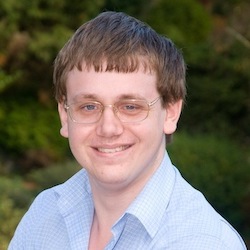Keynote speakers
Dr Michelle Barker
Dr Michelle Barker has extensive expertise in open science, research software, digital workforce capability and digital research infrastructure. As a sociologist, Michelle is passionate about building collaborative partnerships to achieve system change. As Director of the Research Software Alliance (ReSA), she co-leads initiatives including the FAIR 4 Research Software Working Group in the development of community-agreed FAIR principles for research software, and the FAIR 4 Research Software Roadmap to create the conditions for FAIR research software to become a reality.
Michelle recently chaired the OECD Expert Group on digital skills for the research sector, was a member of the OECD Expert Group on Socioeconomic Impact of Research Infrastructures, is a former Advisory Committee Member of the US Software Sustainability Institute (URSSI), and has co-convened conferences including the IEEE International Conference on e-Science Workshop on Sustainable Software for Science: Practice and Experiences, and the International Workshop on Science Gateways.
Michelle is a former Director of the Australian Research Data Commons, where she led the strategic planning for the Australian government’s $180 million, five-year investment in ARDC, the national research software infrastructure investment program, and developed a national strategy to enhance digital workforce capacity in the research sector.
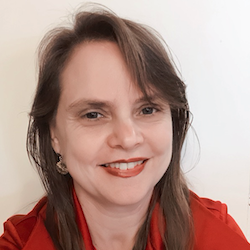
Dr Chonnettia Jones
Dr Chonnettia Jones is Vice President, Research at the Michael Smith Foundation for Health Research - British Columbia’s health research funding agency. Founded after Nobel Laureate Dr Michael Smith, the foundation’s work contributes to healthier lives through research, enhancing the knowledge economy and strengthening the health system by supporting the use of research evidence in policy and practice.
With more than two decades of experience in science and health research, strategy and policy in government and philanthropic sectors in the US, UK/Europe and Canada, Chonnettia guides the foundation’s funding programs, knowledge translation and evaluation activities, and strategic partnerships with provincial, national and international partners to maximise the impact of British Columbia’s investments in health research. Chonnettia also serves on a number of international advisory groups on scientific publishing, open science and anti-racism in research - including Wellcome Trust’s Anti-racism Expert Group.
Prior to joining the Michael Smith Foundation, Chonnettia held an executive leadership role at the Wellcome Trust in London, where she provided strategic leadership to maximise the impact of Wellcome's funded research and strategic initiatives in global health research. While at Wellcome, she was a founding partner of the Research on Research Institute, an international consortium driving a translational research agenda to make research systems more equitable, diverse and inclusive.
Chonnettia trained as a scientist in developmental neurobiology at Emory University in the US. Following her postdoctoral studies, Chonnettia went on to manage a transdisciplinary, international research program at the Janelia Research Campus, an intramural research campus of the Howard Hughes Medical Institute, to advance innovations in science.
Chonnettia is an active public speaker on issues of equity, diversity and inclusion in research and maintains a long-standing commitment to the mentorship of emerging leaders.
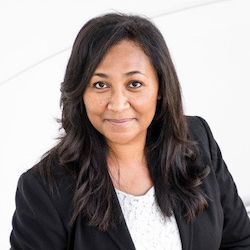
Panelists
Dr Becca Wilson (Chair)
Dr Becca Wilson is an interdisciplinary researcher with a career spanning the space, atmospheric and health sciences. She is currently a research fellow at University of Liverpool developing open source software for the sharing, access and immersive data visualisation of sensitive health data and is also a project specialist in the NIHR ARC North West Coast developing novel data processes that are fundamental to health inequalities research. Becca holds significant expertise in science communication and public engagement – working with schools, museums and funders nationally. She is passionate about increasing diversity in STEM, particularly amongst ethnic minority groups and people with disabilities, and is a disability activist committed to improving inclusivity in the academic sector. In 2020, Becca was named on the Shaw Trust Disability Power 100 List as one of the 100 most influential disabled people in Britain.
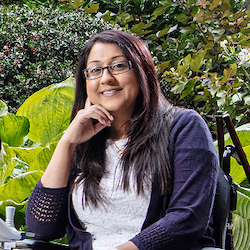
Phoenix CS Andrews
Headshot of Phoenix AndrewsPhoenix CS Andrews is close to completion of a PhD in Information Studies at the University of Sheffield, but is better known for their research and writing on politics, fandom and popular culture. They have spoken at conferences about open access and data across the world and their past employment includes a postdoc in Politics at Leeds and an impact research assistantship on the Programming Historian at Sussex.
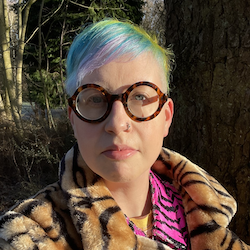
Dr Ella Gale
Dr Ella Gale is the machine learning specialist attached to the University of Bristol School of Chemistry’s new doctoral training centre in Technology Enhanced Chemical Synthesis. She is involved with all aspects of machine learning, data science and robotics as applied to chemical synthesis. She holds a PhD in Computational Chemistry from Imperial College London and has published widely in the areas of artificial intelligence, bio-inspired computing, neural networks, unconventional computing, computer science, materials science, green chemistry and chemical engineering and computational chemistry.
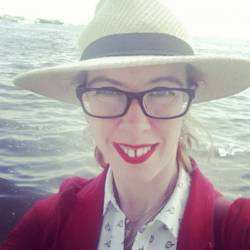
Prof Robert Stevens
Robert Stevens is a Professor of Computer Science and Head of Department at the University of Manchester. His first degree was biochemistry and then started a Ph.D. in molecular biology, which he stopped when he lost his sight. He then learnt how to use computers, and returned to University to do a Masters in biological computation. During his Masters, he was distracted by the problems of manipulating algebra – this led to a Ph.D. in human computer interaction and a career in academic computer science. The biggest asset to his career has been the computer itself. From his perspective, Universities tend to be fairly liberal places and the people with whom he has worked have been supportive and he has tried to return that support in kind. In his career he has concentrated on the things he can do well and avoided doing things which don’t suit his strengths.
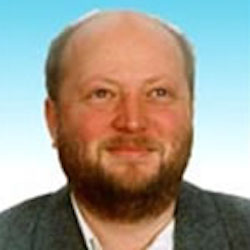
Dr Robin Wilson
I have a diverse background including general software development, plus a degree in Geography and a PhD in satellite imaging of air quality. I am an SSI Fellow, and maintainer of various open-source scientific software projects (such as Py6S). I currently work on data analysis and software development, with a focus on geospatial data, for a variety of clients including academic institutions. In 2014 I was diagnosed with myalgic encephalomyelitis (ME; a fatiguing condition). I have had to adjust my life significantly to take into account my disability. I now work very limited hours and use a wheelchair, and switched from academia to freelance work.
